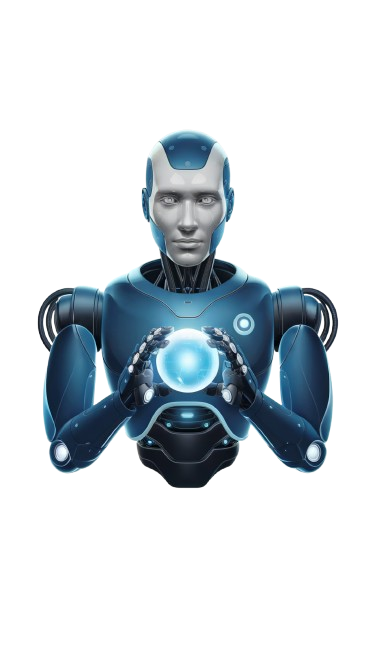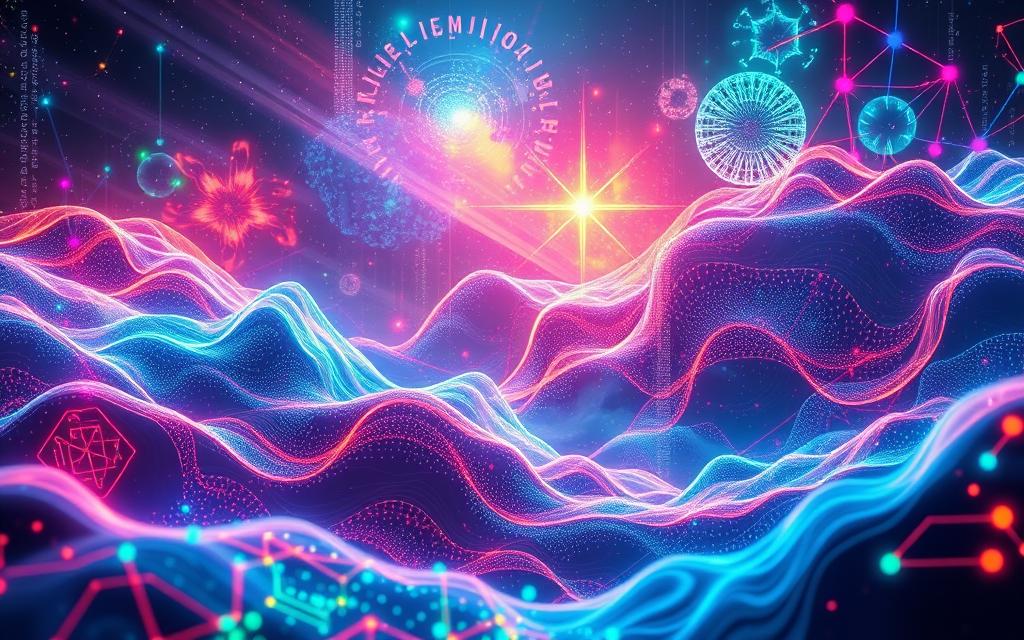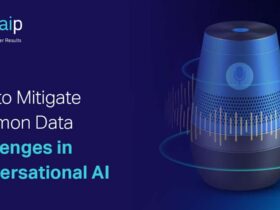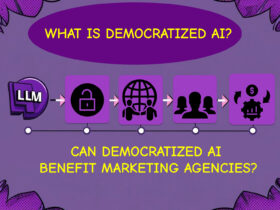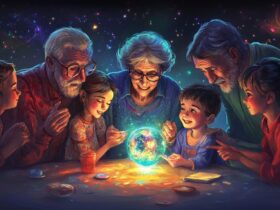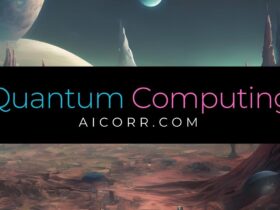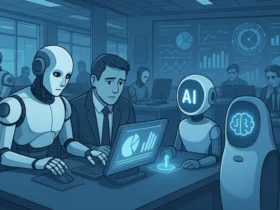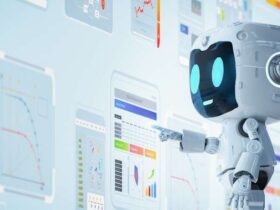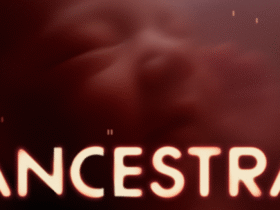Generative AI is changing the game for both companies and individuals. It’s making a big splash in creative fields, opening up new doors for marketers, designers, and content creators. AI image generators are at the forefront, using smart algorithms to make unique, high-quality images with little human help. This is changing how we think about visual design.
The future of AI in visual design looks bright, with tools getting more advanced. They offer more customization and creativity. But, this progress also raises questions about ethics, like copyright, originality, and the role of human artists.
Key Takeaways
- AI image generators can create images in seconds, a task that might take a human designer hours or even days.
- AI tools allow users to tailor images to specific needs, such as targeted ad campaigns, product design, or social media content.
- Traditional design processes often require significant time and financial investment, while AI image generators reduce costs by automating the design process.
- Several AI image generation tools, including DALL-E, Ideogram, and MidJourney, are leading the way in this technology.
- AI image generators help businesses on social media produce unique images that stand out in crowded feeds, maintaining audience engagement.
The Rise of Multi-Modal AI Image Generators
The world of generative AI is changing fast. Tools like DALL-E are leading the way with their multi-modal skills. These AI models can now make content in many formats. They mix text, images, and audio for a richer experience.
Text and Image Generation
New versions of text-to-image generators, like DALL-E’s third generation, can make high-quality images with text inside. This lets users create visuals with text that fits perfectly. It opens up new ways to express creativity and communicate.
Interactive AI for Task Delegation
Interactive AI is another big step forward. These AI tools can give tasks to other software or people, handling projects from start to end. They can write code, test it, and even plan marketing campaigns. This makes complex tasks easier and boosts productivity.
Multi-modal AI and text-to-image tech are getting better all the time. The future of AI task delegation looks amazing. These changes will change how we make, work together, and get things done online.
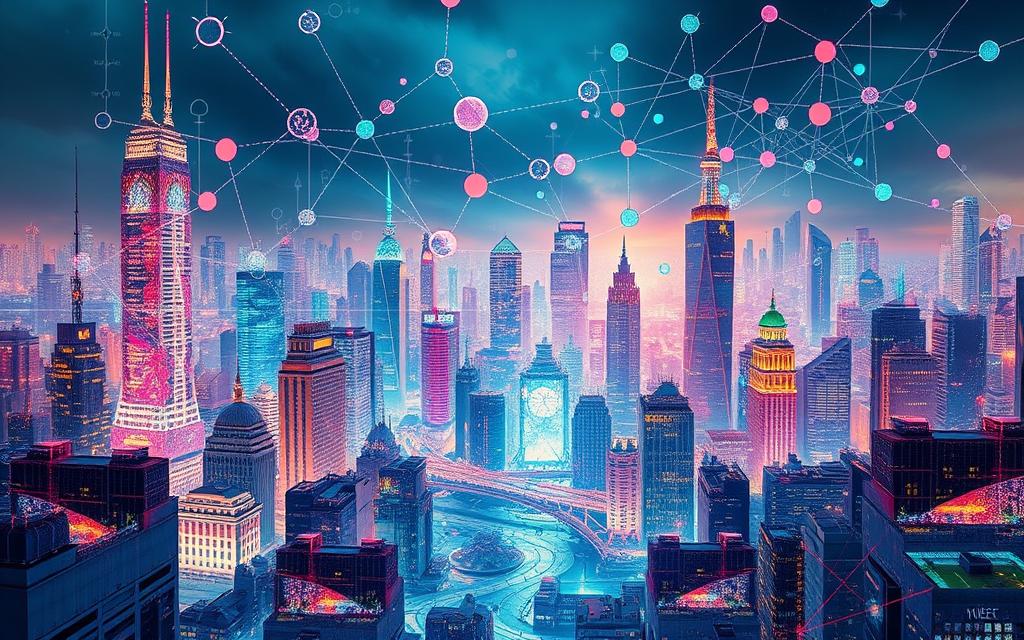
| Feature | Description |
|---|---|
| Text-to-Image Generation | Ability to generate high-quality images with embedded text, enabling seamless integration of visuals and textual elements. |
| Interactive AI for Task Delegation | AI-powered tools that can delegate tasks to other software or human resources, streamlining complex workflows and enhancing productivity. |
| Multi-modal Capabilities | The integration of different media types, such as text, images, and audio, for more accurate and engaging content creation. |
AI Image Generators: Revolutionizing Creative Industries
The creative world is changing fast, thanks to AI image generators. These tools help designers, artists, and creators be more creative and efficient. They’re changing how we tell stories with pictures in fields like fashion, advertising, filmmaking, and journalism.
Benefits of AI Image Generators
AI image generators bring many benefits to creative work. They work faster and make high-quality images quicker than before. They also let users customize and scale their work, making it easier to personalize and produce on a big scale.
How AI Image Generators Work
AI image generators use advanced tech like neural networks and deep learning. These systems learn from lots of images to recognize patterns and create new visuals. They can make images that look real and inspire new ideas.
Use Cases for AI Image Generators
AI image generators have many uses across creative fields. For example, Nike used them in a recent. They also help create personalized artwork and automated content for journalism.
These tools are also changing product design, social media content creation, and visual effects in movies. They make tasks easier and open up new creative paths. This helps both experts and hobbyists in visual arts and design.
As AI image generation gets better, the future of creative work looks exciting. These tools are making things more efficient, customizable, and creative. They’re changing how we see and connect with the world.
Conclusion: Embracing the AI Image Generators Revolution
Marketers, designers, and businesses need to get on board with AI image generators as they change the game. These tools bring up questions about copyright, originality, and the role of human artists. Yet, being ahead means adapting to these new tech advances.
By using AI images, companies can boost their visual content. This makes them more competitive in the fast-changing creative world.
AI image generators make making visual content easier for everyone. Tools like Artifect are easy to use and don’t cost much. They let people of all backgrounds create their own visuals.
More and more marketers, 48% to be exact, are using generative AI tools. It’s important for brand managers to be open to trying new things.
Using AI in visual design brings more efficiency, consistency, and saves money. It’s key to keep a balance between new tech and staying true to your brand. Keeping up with trends and working together as a team helps use AI image generators well.
This way, brands can make content that really speaks to their audience. It helps them succeed in the fast-paced digital world.

